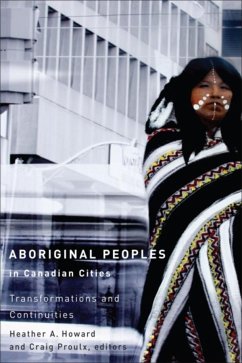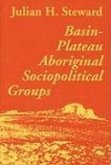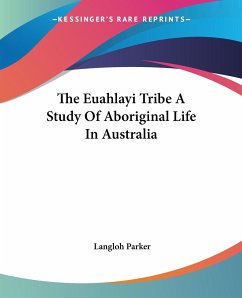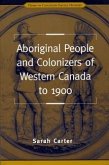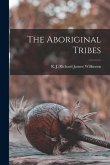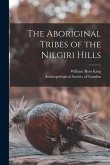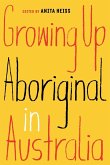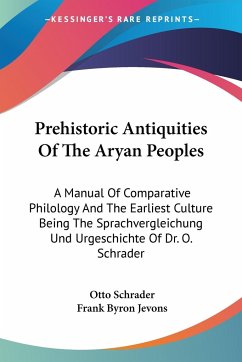Aboriginal Peoples in Canadian Cities
Transformations and Continuities
Herausgeber: Howard, Heather A; Proulx, Craig
Schade – dieser Artikel ist leider ausverkauft. Sobald wir wissen, ob und wann der Artikel wieder verfügbar ist, informieren wir Sie an dieser Stelle.
Aboriginal Peoples in Canadian Cities
Transformations and Continuities
Herausgeber: Howard, Heather A; Proulx, Craig
- Broschiertes Buch
- Merkliste
- Auf die Merkliste
- Bewerten Bewerten
- Teilen
- Produkt teilen
- Produkterinnerung
- Produkterinnerung
7 Neoliberalism and the Urban Aboriginal Experience: A Casino Rama Case Study Darrel Manitowabi Casino Rama, located on the Mnjikaning First Nation near Orillia, Ontario, was lauded as an 'Aboriginal' solution to Aboriginal poverty within the framework of neoliberal reform led by Ontario in the 1990s. However, as a consequence of latent colonial membership structures and of disparities and social divisions generated by the casino, many Aboriginal casino workers have taken up residence in the city of Orillia. This chapter examines the challenges and particularities of the urban Aboriginal…mehr
Andere Kunden interessierten sich auch für
![Basin-Plateau Aboriginal Sociopolitical Groups Basin-Plateau Aboriginal Sociopolitical Groups]() Julian StewardBasin-Plateau Aboriginal Sociopolitical Groups28,99 €
Julian StewardBasin-Plateau Aboriginal Sociopolitical Groups28,99 €![The Euahlayi Tribe A Study Of Aboriginal Life In Australia The Euahlayi Tribe A Study Of Aboriginal Life In Australia]() Langloh ParkerThe Euahlayi Tribe A Study Of Aboriginal Life In Australia15,99 €
Langloh ParkerThe Euahlayi Tribe A Study Of Aboriginal Life In Australia15,99 €![Aboriginal People and Colonizers of Western Canada to 1900 Aboriginal People and Colonizers of Western Canada to 1900]() Sarah CarterAboriginal People and Colonizers of Western Canada to 190037,99 €
Sarah CarterAboriginal People and Colonizers of Western Canada to 190037,99 €![The Aboriginal Tribes The Aboriginal Tribes]() The Aboriginal Tribes16,99 €
The Aboriginal Tribes16,99 €![The Aboriginal Tribes of the Nilgiri Hills The Aboriginal Tribes of the Nilgiri Hills]() The Aboriginal Tribes of the Nilgiri Hills16,99 €
The Aboriginal Tribes of the Nilgiri Hills16,99 €![Growing Up Aboriginal in Australia Growing Up Aboriginal in Australia]() Growing Up Aboriginal in Australia23,99 €
Growing Up Aboriginal in Australia23,99 €![Prehistoric Antiquities Of The Aryan Peoples Prehistoric Antiquities Of The Aryan Peoples]() Otto SchraderPrehistoric Antiquities Of The Aryan Peoples30,99 €
Otto SchraderPrehistoric Antiquities Of The Aryan Peoples30,99 €-
-
7 Neoliberalism and the Urban Aboriginal Experience: A Casino Rama Case Study Darrel Manitowabi Casino Rama, located on the Mnjikaning First Nation near Orillia, Ontario, was lauded as an 'Aboriginal' solution to Aboriginal poverty within the framework of neoliberal reform led by Ontario in the 1990s. However, as a consequence of latent colonial membership structures and of disparities and social divisions generated by the casino, many Aboriginal casino workers have taken up residence in the city of Orillia. This chapter examines the challenges and particularities of the urban Aboriginal experience of these workers as conditioned by the interactions of Aboriginal symbolic capital and neoliberalism.
Produktdetails
- Produktdetails
- Verlag: Wilfrid Laurier University Press
- Seitenzahl: 264
- Erscheinungstermin: 12. April 2011
- Englisch
- Abmessung: 228mm x 151mm x 20mm
- Gewicht: 397g
- ISBN-13: 9781554582600
- ISBN-10: 1554582601
- Artikelnr.: 31289096
- Herstellerkennzeichnung
- Libri GmbH
- Europaallee 1
- 36244 Bad Hersfeld
- gpsr@libri.de
- Verlag: Wilfrid Laurier University Press
- Seitenzahl: 264
- Erscheinungstermin: 12. April 2011
- Englisch
- Abmessung: 228mm x 151mm x 20mm
- Gewicht: 397g
- ISBN-13: 9781554582600
- ISBN-10: 1554582601
- Artikelnr.: 31289096
- Herstellerkennzeichnung
- Libri GmbH
- Europaallee 1
- 36244 Bad Hersfeld
- gpsr@libri.de
Heather A. Howard is an assistant professor in the Department of Anthropology at Michigan State University and is affiliated faculty with the Centre for Aboriginal Initiatives at the University of Toronto. She co-edited, with Rae Bridgman and Sally Cole, Feminist Fields: Ethnographic Insights (1999) and, with Susan Applegate Krouse, Keeping the Campfires Going: Native Women's Activism in Urban Areas (2009). Craig Proulx is an associate professor in anthropology at St. Thomas University in Fredericton, New Brunswick. In 2003 he published Reclaiming Aboriginal Justice, Community, and Identity, which discussed the Community Council Project, an Aboriginal-run diversion project in Toronto, Ontario. His current research is in the realm of media representations of Aboriginal peoples in Canada.
Table of Contents for
Aboriginal Peoples in Canadian Cities: Transformations and Continuities,
edited by Heather Howard and Craig Proulx
Transformations and Continuities: An Introduction Heather A. Howard and
Craig Proulx
Urban Life: Reflections of a Middle-Class Indian David R. Newhouse
Nomadic Legacies and Contemporary Decision-Making Strategies between
Reserve and City Regna Darnell
The Papaschase Band: Building Awareness and Community in the City of
Edmonton Jaimy L. Miller
"Regaining the childhood I should have had": The Transformation of Inuit
Identities, Institutions, and Community in Ottawa Donna Patrick,
Julie-Ann Tomiak, Lynda Brown, Heidi Langille, and Mihaela Vieru
The Friendship Centre: Native People and the Organization of Community in
Cities Heather A. Howard
Neoliberalism and the Urban Aboriginal Experience: A Casino Rama Case Study
Darrel Manitowabi
Challenges to and Successes in Urban Aboriginal Education in Canada: A Case
Study of Wiingashk Secondary School Sadie Donovan
A Critical Discourse Analysis of John Stackhouse's "Welcome to Harlem on
the Prairies" Craig Proulx
Urban Aboriginal Gangs and Street Sociality in the Canadian West: Places,
Performances, and Predicaments of Transition Kathleen Buddle
"Why Is My People Sleeping?": First Nations Hip Hop between the Rez and the
City Marianne Ignace
Plains Indian Ways to Inter-tribal Cultural Healing in Vancouver
Lindy-Lou Flynn
Contributors
Index
Contributors' Biographies
Lynda Brown was born in Nunavut, and her family originates from Pangnirtung
and Scotland. She lived mainly in Alberta and Ontario while growing up.
Upon graduating from Trent University with an Honours B.A. in Native
studies and psychology, she moved to Ottawa. Lynda volunteers her time,
focusing on Inuit women, children and affordable housing. Lynda is a
traditional throat singer and drummer, and shares her cultural knowledge
through demonstrations and workshops.
Kathleen Buddle is an associate professor of anthropology at the University
of Manitoba. Her research addresses First Nations media activism in Canada;
cultural performance and politics in urban Aboriginal localities; Native
street gangs, the manufacturing of prairie lawlessness and disciplining of
the bodies of criminal others; and the authorizing of new social categories
by Native women's organizations as they struggle to shift public debates
about Native families onto more productive terrain.
Regna Darnell is Distinguished University Professor of Anthropology and
First Nations Studies at the University of Western Ontario and holds a
cross-appointment in ecosystem health in the Schulich School of Medicine
and Dentistry. She has published widely in First Nations languages and
cultures, especially Anishinaabeg and Plains Cree.
Sadie Donovan is a Ph.D. student of Anglo-Celtic settler ancestry. She is
completing her degree at Simon Fraser University in British Columbia and is
interested in research pertaining to the equitable education of Aboriginal
youth.
Lindy-Lou Flynn is a cultural anthropologist who has conducted fieldwork in
Aboriginal communities for over twenty years, primarily in western Canada.
Her focus is on the healing and empowerment movement initiated by Native
people in their ongoing recovery from colonialism. She is a full-time
instructor of anthropology and Native studies at Keyano College in Fort
McMurray, Alberta.
Marianne Boelscher Ignace teaches at Simon Fraser University. Her interests
include the politics and negotiation of meaning in indigenous-language
discourse and knowledge systems, including ecological knowledge. She has
carried out long-term collaborative ethnographic and linguistic research
with the Secwepemc and Haida peoples, which has resulted in various
monographs, journal articles, and book contributions.
Heather A. Howard teaches at Michigan State University and is affiliated
faculty with the Centre for Aboriginal Initiatives at the University of
Toronto. Her research examines the politics of knowledge production and
practice in community-based health education, social service delivery, and
indigenous historiographies of urban space. She is the co-editor of
Feminist Fields: Ethnographic Insights (1999) and Keeping the Campfires
Going: Native Women's Activism in Urban Areas (2009).
Heidi Langille, with roots in Nunatsiavut (Northern Labrador), has been a
"life-long Urban Inuk." She has travelled across the North in different
capacities, meeting new people and learning from them. Heidi volunteers her
time, with a focus on children and affordable housing. She has given many
presentations and interactive demonstrations on Inuit culture, heritage,
values, and beliefs, including traditional throat singing.
Darrel Manitowabi is an assistant professor of Native studies at the
University of Sudbury College, Laurentian University. He is a citizen of
the Wikwemikong Unceded First Nation and currently resides on the Whitefish
River First Nation. Manitowabi's research interests include indigenous
well-being, indigenous anthropology, Anishinabe Kendasawin (Ojibwa
knowledge), and indigenous-state relations.
Jaimy L. Miller is from Edmonton, Alberta, and is a descendent of the
Papaschase Band. She completed her M.A. in anthropology in 2006 and her
master of public administration in 2010. She is currently working in the
field of Aboriginal relations in Edmonton.
David Newhouse is Onondaga from the Six Nations of the Grand River near
Brantford, Ontario. He is chair of the Department of Indigenous Studies at
Trent and an associate professor in the Business Administration Program.
His research interests focus on the development of modern Aboriginal
society. He visits Starbucks as often as possible.
Donna Patrick is a professor in the School of Canadian Studies and the
Department of Sociology and Anthropology at Carleton University, Ottawa.
Her current research focuses on urban Inuit and more specifically on Inuit
literacies and community-based activities, which connect Inuit in Ottawa to
the arctic. Other interests include indigenous rights and language rights,
and language endangerment discourse, including the political, social, and
cultural aspects of language use among indigenous peoples in Canada.
Craig Proulx is an associate professor in the Department of Anthropology at
St. Thomas University in Fredericton, New Brunswick. His research focuses
on Aboriginal peoples in Canada (urban and rural), legal anthropology,
anthropology of sport, anthropology of media, and critical discourse
analysis. His book Reclaiming Aboriginal Justice, Identity and Community
is based on fieldwork with the Community Council Project in Toronto.
Julie Tomiak is a Ph.D. candidate in Canadian Studies, with a
specialization in political economy, at Carleton University. Her research
focuses on the changing relationships between indigeneity, space, public
policy, and rights. Her dissertation examines how neoliberal state
rescaling and indigenous struggles for self-determination intersect in
Ottawa and Winnipeg.
Mihaela Ecaterina Vieru is a Ph.D. candidate in the program of Canadian
Studies, with a specialization in political economy, at Carleton
University, Ottawa. She has an M.A. degree in Canadian studies from
Carleton University (2006). Her research interests focus on ethnicity,
multiculturalism, integration, citizenship, and national security in
Canadian and international contexts.
Aboriginal Peoples in Canadian Cities: Transformations and Continuities,
edited by Heather Howard and Craig Proulx
Transformations and Continuities: An Introduction Heather A. Howard and
Craig Proulx
Urban Life: Reflections of a Middle-Class Indian David R. Newhouse
Nomadic Legacies and Contemporary Decision-Making Strategies between
Reserve and City Regna Darnell
The Papaschase Band: Building Awareness and Community in the City of
Edmonton Jaimy L. Miller
"Regaining the childhood I should have had": The Transformation of Inuit
Identities, Institutions, and Community in Ottawa Donna Patrick,
Julie-Ann Tomiak, Lynda Brown, Heidi Langille, and Mihaela Vieru
The Friendship Centre: Native People and the Organization of Community in
Cities Heather A. Howard
Neoliberalism and the Urban Aboriginal Experience: A Casino Rama Case Study
Darrel Manitowabi
Challenges to and Successes in Urban Aboriginal Education in Canada: A Case
Study of Wiingashk Secondary School Sadie Donovan
A Critical Discourse Analysis of John Stackhouse's "Welcome to Harlem on
the Prairies" Craig Proulx
Urban Aboriginal Gangs and Street Sociality in the Canadian West: Places,
Performances, and Predicaments of Transition Kathleen Buddle
"Why Is My People Sleeping?": First Nations Hip Hop between the Rez and the
City Marianne Ignace
Plains Indian Ways to Inter-tribal Cultural Healing in Vancouver
Lindy-Lou Flynn
Contributors
Index
Contributors' Biographies
Lynda Brown was born in Nunavut, and her family originates from Pangnirtung
and Scotland. She lived mainly in Alberta and Ontario while growing up.
Upon graduating from Trent University with an Honours B.A. in Native
studies and psychology, she moved to Ottawa. Lynda volunteers her time,
focusing on Inuit women, children and affordable housing. Lynda is a
traditional throat singer and drummer, and shares her cultural knowledge
through demonstrations and workshops.
Kathleen Buddle is an associate professor of anthropology at the University
of Manitoba. Her research addresses First Nations media activism in Canada;
cultural performance and politics in urban Aboriginal localities; Native
street gangs, the manufacturing of prairie lawlessness and disciplining of
the bodies of criminal others; and the authorizing of new social categories
by Native women's organizations as they struggle to shift public debates
about Native families onto more productive terrain.
Regna Darnell is Distinguished University Professor of Anthropology and
First Nations Studies at the University of Western Ontario and holds a
cross-appointment in ecosystem health in the Schulich School of Medicine
and Dentistry. She has published widely in First Nations languages and
cultures, especially Anishinaabeg and Plains Cree.
Sadie Donovan is a Ph.D. student of Anglo-Celtic settler ancestry. She is
completing her degree at Simon Fraser University in British Columbia and is
interested in research pertaining to the equitable education of Aboriginal
youth.
Lindy-Lou Flynn is a cultural anthropologist who has conducted fieldwork in
Aboriginal communities for over twenty years, primarily in western Canada.
Her focus is on the healing and empowerment movement initiated by Native
people in their ongoing recovery from colonialism. She is a full-time
instructor of anthropology and Native studies at Keyano College in Fort
McMurray, Alberta.
Marianne Boelscher Ignace teaches at Simon Fraser University. Her interests
include the politics and negotiation of meaning in indigenous-language
discourse and knowledge systems, including ecological knowledge. She has
carried out long-term collaborative ethnographic and linguistic research
with the Secwepemc and Haida peoples, which has resulted in various
monographs, journal articles, and book contributions.
Heather A. Howard teaches at Michigan State University and is affiliated
faculty with the Centre for Aboriginal Initiatives at the University of
Toronto. Her research examines the politics of knowledge production and
practice in community-based health education, social service delivery, and
indigenous historiographies of urban space. She is the co-editor of
Feminist Fields: Ethnographic Insights (1999) and Keeping the Campfires
Going: Native Women's Activism in Urban Areas (2009).
Heidi Langille, with roots in Nunatsiavut (Northern Labrador), has been a
"life-long Urban Inuk." She has travelled across the North in different
capacities, meeting new people and learning from them. Heidi volunteers her
time, with a focus on children and affordable housing. She has given many
presentations and interactive demonstrations on Inuit culture, heritage,
values, and beliefs, including traditional throat singing.
Darrel Manitowabi is an assistant professor of Native studies at the
University of Sudbury College, Laurentian University. He is a citizen of
the Wikwemikong Unceded First Nation and currently resides on the Whitefish
River First Nation. Manitowabi's research interests include indigenous
well-being, indigenous anthropology, Anishinabe Kendasawin (Ojibwa
knowledge), and indigenous-state relations.
Jaimy L. Miller is from Edmonton, Alberta, and is a descendent of the
Papaschase Band. She completed her M.A. in anthropology in 2006 and her
master of public administration in 2010. She is currently working in the
field of Aboriginal relations in Edmonton.
David Newhouse is Onondaga from the Six Nations of the Grand River near
Brantford, Ontario. He is chair of the Department of Indigenous Studies at
Trent and an associate professor in the Business Administration Program.
His research interests focus on the development of modern Aboriginal
society. He visits Starbucks as often as possible.
Donna Patrick is a professor in the School of Canadian Studies and the
Department of Sociology and Anthropology at Carleton University, Ottawa.
Her current research focuses on urban Inuit and more specifically on Inuit
literacies and community-based activities, which connect Inuit in Ottawa to
the arctic. Other interests include indigenous rights and language rights,
and language endangerment discourse, including the political, social, and
cultural aspects of language use among indigenous peoples in Canada.
Craig Proulx is an associate professor in the Department of Anthropology at
St. Thomas University in Fredericton, New Brunswick. His research focuses
on Aboriginal peoples in Canada (urban and rural), legal anthropology,
anthropology of sport, anthropology of media, and critical discourse
analysis. His book Reclaiming Aboriginal Justice, Identity and Community
is based on fieldwork with the Community Council Project in Toronto.
Julie Tomiak is a Ph.D. candidate in Canadian Studies, with a
specialization in political economy, at Carleton University. Her research
focuses on the changing relationships between indigeneity, space, public
policy, and rights. Her dissertation examines how neoliberal state
rescaling and indigenous struggles for self-determination intersect in
Ottawa and Winnipeg.
Mihaela Ecaterina Vieru is a Ph.D. candidate in the program of Canadian
Studies, with a specialization in political economy, at Carleton
University, Ottawa. She has an M.A. degree in Canadian studies from
Carleton University (2006). Her research interests focus on ethnicity,
multiculturalism, integration, citizenship, and national security in
Canadian and international contexts.
Table of Contents for
Aboriginal Peoples in Canadian Cities: Transformations and Continuities,
edited by Heather Howard and Craig Proulx
Transformations and Continuities: An Introduction Heather A. Howard and
Craig Proulx
Urban Life: Reflections of a Middle-Class Indian David R. Newhouse
Nomadic Legacies and Contemporary Decision-Making Strategies between
Reserve and City Regna Darnell
The Papaschase Band: Building Awareness and Community in the City of
Edmonton Jaimy L. Miller
"Regaining the childhood I should have had": The Transformation of Inuit
Identities, Institutions, and Community in Ottawa Donna Patrick,
Julie-Ann Tomiak, Lynda Brown, Heidi Langille, and Mihaela Vieru
The Friendship Centre: Native People and the Organization of Community in
Cities Heather A. Howard
Neoliberalism and the Urban Aboriginal Experience: A Casino Rama Case Study
Darrel Manitowabi
Challenges to and Successes in Urban Aboriginal Education in Canada: A Case
Study of Wiingashk Secondary School Sadie Donovan
A Critical Discourse Analysis of John Stackhouse's "Welcome to Harlem on
the Prairies" Craig Proulx
Urban Aboriginal Gangs and Street Sociality in the Canadian West: Places,
Performances, and Predicaments of Transition Kathleen Buddle
"Why Is My People Sleeping?": First Nations Hip Hop between the Rez and the
City Marianne Ignace
Plains Indian Ways to Inter-tribal Cultural Healing in Vancouver
Lindy-Lou Flynn
Contributors
Index
Contributors' Biographies
Lynda Brown was born in Nunavut, and her family originates from Pangnirtung
and Scotland. She lived mainly in Alberta and Ontario while growing up.
Upon graduating from Trent University with an Honours B.A. in Native
studies and psychology, she moved to Ottawa. Lynda volunteers her time,
focusing on Inuit women, children and affordable housing. Lynda is a
traditional throat singer and drummer, and shares her cultural knowledge
through demonstrations and workshops.
Kathleen Buddle is an associate professor of anthropology at the University
of Manitoba. Her research addresses First Nations media activism in Canada;
cultural performance and politics in urban Aboriginal localities; Native
street gangs, the manufacturing of prairie lawlessness and disciplining of
the bodies of criminal others; and the authorizing of new social categories
by Native women's organizations as they struggle to shift public debates
about Native families onto more productive terrain.
Regna Darnell is Distinguished University Professor of Anthropology and
First Nations Studies at the University of Western Ontario and holds a
cross-appointment in ecosystem health in the Schulich School of Medicine
and Dentistry. She has published widely in First Nations languages and
cultures, especially Anishinaabeg and Plains Cree.
Sadie Donovan is a Ph.D. student of Anglo-Celtic settler ancestry. She is
completing her degree at Simon Fraser University in British Columbia and is
interested in research pertaining to the equitable education of Aboriginal
youth.
Lindy-Lou Flynn is a cultural anthropologist who has conducted fieldwork in
Aboriginal communities for over twenty years, primarily in western Canada.
Her focus is on the healing and empowerment movement initiated by Native
people in their ongoing recovery from colonialism. She is a full-time
instructor of anthropology and Native studies at Keyano College in Fort
McMurray, Alberta.
Marianne Boelscher Ignace teaches at Simon Fraser University. Her interests
include the politics and negotiation of meaning in indigenous-language
discourse and knowledge systems, including ecological knowledge. She has
carried out long-term collaborative ethnographic and linguistic research
with the Secwepemc and Haida peoples, which has resulted in various
monographs, journal articles, and book contributions.
Heather A. Howard teaches at Michigan State University and is affiliated
faculty with the Centre for Aboriginal Initiatives at the University of
Toronto. Her research examines the politics of knowledge production and
practice in community-based health education, social service delivery, and
indigenous historiographies of urban space. She is the co-editor of
Feminist Fields: Ethnographic Insights (1999) and Keeping the Campfires
Going: Native Women's Activism in Urban Areas (2009).
Heidi Langille, with roots in Nunatsiavut (Northern Labrador), has been a
"life-long Urban Inuk." She has travelled across the North in different
capacities, meeting new people and learning from them. Heidi volunteers her
time, with a focus on children and affordable housing. She has given many
presentations and interactive demonstrations on Inuit culture, heritage,
values, and beliefs, including traditional throat singing.
Darrel Manitowabi is an assistant professor of Native studies at the
University of Sudbury College, Laurentian University. He is a citizen of
the Wikwemikong Unceded First Nation and currently resides on the Whitefish
River First Nation. Manitowabi's research interests include indigenous
well-being, indigenous anthropology, Anishinabe Kendasawin (Ojibwa
knowledge), and indigenous-state relations.
Jaimy L. Miller is from Edmonton, Alberta, and is a descendent of the
Papaschase Band. She completed her M.A. in anthropology in 2006 and her
master of public administration in 2010. She is currently working in the
field of Aboriginal relations in Edmonton.
David Newhouse is Onondaga from the Six Nations of the Grand River near
Brantford, Ontario. He is chair of the Department of Indigenous Studies at
Trent and an associate professor in the Business Administration Program.
His research interests focus on the development of modern Aboriginal
society. He visits Starbucks as often as possible.
Donna Patrick is a professor in the School of Canadian Studies and the
Department of Sociology and Anthropology at Carleton University, Ottawa.
Her current research focuses on urban Inuit and more specifically on Inuit
literacies and community-based activities, which connect Inuit in Ottawa to
the arctic. Other interests include indigenous rights and language rights,
and language endangerment discourse, including the political, social, and
cultural aspects of language use among indigenous peoples in Canada.
Craig Proulx is an associate professor in the Department of Anthropology at
St. Thomas University in Fredericton, New Brunswick. His research focuses
on Aboriginal peoples in Canada (urban and rural), legal anthropology,
anthropology of sport, anthropology of media, and critical discourse
analysis. His book Reclaiming Aboriginal Justice, Identity and Community
is based on fieldwork with the Community Council Project in Toronto.
Julie Tomiak is a Ph.D. candidate in Canadian Studies, with a
specialization in political economy, at Carleton University. Her research
focuses on the changing relationships between indigeneity, space, public
policy, and rights. Her dissertation examines how neoliberal state
rescaling and indigenous struggles for self-determination intersect in
Ottawa and Winnipeg.
Mihaela Ecaterina Vieru is a Ph.D. candidate in the program of Canadian
Studies, with a specialization in political economy, at Carleton
University, Ottawa. She has an M.A. degree in Canadian studies from
Carleton University (2006). Her research interests focus on ethnicity,
multiculturalism, integration, citizenship, and national security in
Canadian and international contexts.
Aboriginal Peoples in Canadian Cities: Transformations and Continuities,
edited by Heather Howard and Craig Proulx
Transformations and Continuities: An Introduction Heather A. Howard and
Craig Proulx
Urban Life: Reflections of a Middle-Class Indian David R. Newhouse
Nomadic Legacies and Contemporary Decision-Making Strategies between
Reserve and City Regna Darnell
The Papaschase Band: Building Awareness and Community in the City of
Edmonton Jaimy L. Miller
"Regaining the childhood I should have had": The Transformation of Inuit
Identities, Institutions, and Community in Ottawa Donna Patrick,
Julie-Ann Tomiak, Lynda Brown, Heidi Langille, and Mihaela Vieru
The Friendship Centre: Native People and the Organization of Community in
Cities Heather A. Howard
Neoliberalism and the Urban Aboriginal Experience: A Casino Rama Case Study
Darrel Manitowabi
Challenges to and Successes in Urban Aboriginal Education in Canada: A Case
Study of Wiingashk Secondary School Sadie Donovan
A Critical Discourse Analysis of John Stackhouse's "Welcome to Harlem on
the Prairies" Craig Proulx
Urban Aboriginal Gangs and Street Sociality in the Canadian West: Places,
Performances, and Predicaments of Transition Kathleen Buddle
"Why Is My People Sleeping?": First Nations Hip Hop between the Rez and the
City Marianne Ignace
Plains Indian Ways to Inter-tribal Cultural Healing in Vancouver
Lindy-Lou Flynn
Contributors
Index
Contributors' Biographies
Lynda Brown was born in Nunavut, and her family originates from Pangnirtung
and Scotland. She lived mainly in Alberta and Ontario while growing up.
Upon graduating from Trent University with an Honours B.A. in Native
studies and psychology, she moved to Ottawa. Lynda volunteers her time,
focusing on Inuit women, children and affordable housing. Lynda is a
traditional throat singer and drummer, and shares her cultural knowledge
through demonstrations and workshops.
Kathleen Buddle is an associate professor of anthropology at the University
of Manitoba. Her research addresses First Nations media activism in Canada;
cultural performance and politics in urban Aboriginal localities; Native
street gangs, the manufacturing of prairie lawlessness and disciplining of
the bodies of criminal others; and the authorizing of new social categories
by Native women's organizations as they struggle to shift public debates
about Native families onto more productive terrain.
Regna Darnell is Distinguished University Professor of Anthropology and
First Nations Studies at the University of Western Ontario and holds a
cross-appointment in ecosystem health in the Schulich School of Medicine
and Dentistry. She has published widely in First Nations languages and
cultures, especially Anishinaabeg and Plains Cree.
Sadie Donovan is a Ph.D. student of Anglo-Celtic settler ancestry. She is
completing her degree at Simon Fraser University in British Columbia and is
interested in research pertaining to the equitable education of Aboriginal
youth.
Lindy-Lou Flynn is a cultural anthropologist who has conducted fieldwork in
Aboriginal communities for over twenty years, primarily in western Canada.
Her focus is on the healing and empowerment movement initiated by Native
people in their ongoing recovery from colonialism. She is a full-time
instructor of anthropology and Native studies at Keyano College in Fort
McMurray, Alberta.
Marianne Boelscher Ignace teaches at Simon Fraser University. Her interests
include the politics and negotiation of meaning in indigenous-language
discourse and knowledge systems, including ecological knowledge. She has
carried out long-term collaborative ethnographic and linguistic research
with the Secwepemc and Haida peoples, which has resulted in various
monographs, journal articles, and book contributions.
Heather A. Howard teaches at Michigan State University and is affiliated
faculty with the Centre for Aboriginal Initiatives at the University of
Toronto. Her research examines the politics of knowledge production and
practice in community-based health education, social service delivery, and
indigenous historiographies of urban space. She is the co-editor of
Feminist Fields: Ethnographic Insights (1999) and Keeping the Campfires
Going: Native Women's Activism in Urban Areas (2009).
Heidi Langille, with roots in Nunatsiavut (Northern Labrador), has been a
"life-long Urban Inuk." She has travelled across the North in different
capacities, meeting new people and learning from them. Heidi volunteers her
time, with a focus on children and affordable housing. She has given many
presentations and interactive demonstrations on Inuit culture, heritage,
values, and beliefs, including traditional throat singing.
Darrel Manitowabi is an assistant professor of Native studies at the
University of Sudbury College, Laurentian University. He is a citizen of
the Wikwemikong Unceded First Nation and currently resides on the Whitefish
River First Nation. Manitowabi's research interests include indigenous
well-being, indigenous anthropology, Anishinabe Kendasawin (Ojibwa
knowledge), and indigenous-state relations.
Jaimy L. Miller is from Edmonton, Alberta, and is a descendent of the
Papaschase Band. She completed her M.A. in anthropology in 2006 and her
master of public administration in 2010. She is currently working in the
field of Aboriginal relations in Edmonton.
David Newhouse is Onondaga from the Six Nations of the Grand River near
Brantford, Ontario. He is chair of the Department of Indigenous Studies at
Trent and an associate professor in the Business Administration Program.
His research interests focus on the development of modern Aboriginal
society. He visits Starbucks as often as possible.
Donna Patrick is a professor in the School of Canadian Studies and the
Department of Sociology and Anthropology at Carleton University, Ottawa.
Her current research focuses on urban Inuit and more specifically on Inuit
literacies and community-based activities, which connect Inuit in Ottawa to
the arctic. Other interests include indigenous rights and language rights,
and language endangerment discourse, including the political, social, and
cultural aspects of language use among indigenous peoples in Canada.
Craig Proulx is an associate professor in the Department of Anthropology at
St. Thomas University in Fredericton, New Brunswick. His research focuses
on Aboriginal peoples in Canada (urban and rural), legal anthropology,
anthropology of sport, anthropology of media, and critical discourse
analysis. His book Reclaiming Aboriginal Justice, Identity and Community
is based on fieldwork with the Community Council Project in Toronto.
Julie Tomiak is a Ph.D. candidate in Canadian Studies, with a
specialization in political economy, at Carleton University. Her research
focuses on the changing relationships between indigeneity, space, public
policy, and rights. Her dissertation examines how neoliberal state
rescaling and indigenous struggles for self-determination intersect in
Ottawa and Winnipeg.
Mihaela Ecaterina Vieru is a Ph.D. candidate in the program of Canadian
Studies, with a specialization in political economy, at Carleton
University, Ottawa. She has an M.A. degree in Canadian studies from
Carleton University (2006). Her research interests focus on ethnicity,
multiculturalism, integration, citizenship, and national security in
Canadian and international contexts.

